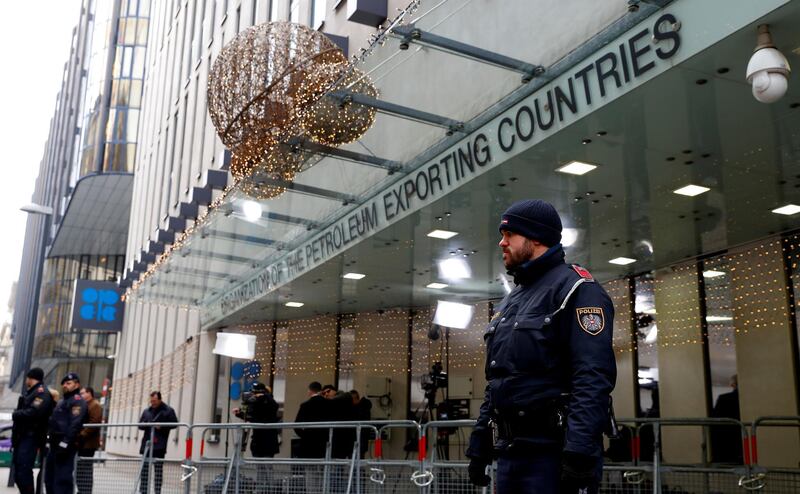Oil prices remained steady on Wednesday after dropping to a 13-month low due to reverberations from the spread of the coronavirus, which has disrupted supply chains, trade and transportation globally and forced Opec+ to hold an extraordinary meeting this month.
The Opec+ alliance, led by Saudi Arabia and Russia, is convening for a second day as part of a joint technical committee meeting to assess the impact of the virus on oil markets, which have seen the worst slide in January 1991.
Brent was up 1.19 per cent at $54.60 per barrel while West Texas Intermediate was up 1.07 per cent at $50.14 per barrel at 8.44am UAE time.
Analysts have suggested Opec+ could consider drawing back a further 500,000 barrels per day from markets. The group has been undertaking 1.7 million bpd of cuts, with additional voluntary commitments of 400,000 bpd by Saudi Arabia since the beginning of the year.
"What keeps the price from tumbling further is certainly the expectation that the Opec+ could lower its production by a million barrels per day to readjust its offer to the sharp decline in oil demand caused by the coronavirus," said Ipek Ozkardeskaya, senior analyst at Swissquote Bank. "Given the mounting downside pressure on oil and gas prices, anything less than that would send the price of a barrel below the $50 handle."
Prices may hover in the $55 to 65 barrel range after the second quarter, Dammam-based Apicorp said on Tuesday. A downward revision of 300,000 bpd to global liquids demand is also expected due to the economic impact of the spreading virus, according to the multilateral lender.
Prices were also impacted by an industry report, which suggested a higher US inventory build up. The industry-funded American Petroleum Institute reported US oil stocks rose 4.18 million barrels last week.
Higher supply at a time of weakening demand from China, the biggest oil importer is likely to depress prices further.
Domestic travel within China may have declined 40 per cent year-on-year at the beginning of the current holiday period when fears over the spread of the coronavirus escalated, according to JBC Energy. Swiss bank Julius Baer estimates a 20 per cent disruption to air traffic for a month will reduce Chinese demand for fuel by less than 0.2 per cent.








